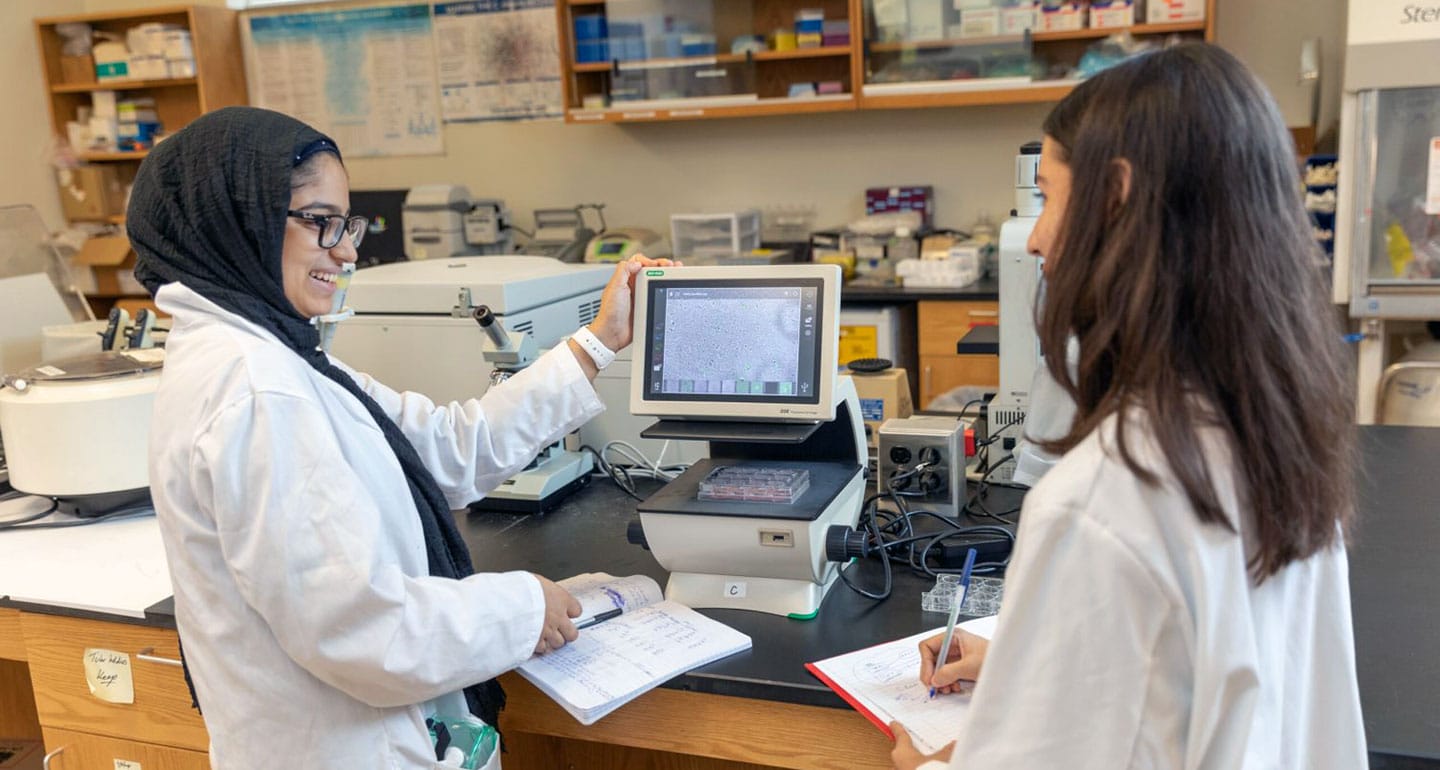Illuminate the Inner Body with Cutting-Edge Technology
Harness the power of ultrasound, a non-invasive and radiation-free technology, to produce real-time images of organs, tissues, and blood flow within the body. Delve into the complexities of human anatomy and physiology, gaining a profound understanding of the structures and processes you’ll be visualizing.
As technology continues to advance, the field of diagnostic medical sonography is poised for continued growth and innovation. Stay at the forefront of this dynamic field by pursuing continuing education opportunities and exploring emerging technologies.
Join the ranks of diagnostic medical sonographers and make a tangible difference in the lives of others. Your expertise and dedication will illuminate the unseen, providing invaluable insights for patient diagnosis and treatment.
Diagnostic Medical Sonography Track Requirements
Academic Requirements
- Complete the first three years of coursework at Benedictine University with at least 90 semester credit hours.
- Maintain a cumulative GPA of 2.800 or above.
- Fulfill all college graduation requirements before entering the clinical education program.
Clinical Education Requirements
- Apply to Northwestern Memorial Hospital for the clinical education curriculum during the junior year.
- Successfully complete an 18-month, 45-semester-credit-hour clinical education curriculum at Northwestern Memorial Hospital.
- Demonstrate strong clinical performance and maintain a satisfactory GPA throughout the clinical education program.
Additional Requirements
The admissions process for the clinical education program is competitive.
Upon successful completion of the program, students will receive a Certificate of Qualification as a Diagnostic Medical Sonographer.
A Diagnostic Medical Sonography (DMS) degree opens doors to a multitude of rewarding and fulfilling career opportunities in the healthcare industry.
Here are the top five career paths you can pursue with this qualification:
Diagnostic Medical Sonographer: This is the primary career path for DMS graduates. Diagnostic medical sonographers, also known as ultrasound technicians, utilize high-frequency sound waves to create real-time images of internal organs, tissues, and blood flow. They play a crucial role in diagnosing and monitoring various medical conditions, including abdominal disorders, heart abnormalities, and fetal development.
Cardiac Sonographer: Cardiac sonographers specialize in the use of ultrasound to evaluate the structure and function of the heart. They perform echocardiograms, which provide detailed images of the heart’s valves, chambers, and blood flow, aiding in the diagnosis and management of heart conditions.
Vascular Sonographer: Vascular sonographers focus on the assessment of the vascular system, including arteries, veins, and lymph vessels. They employ ultrasound to detect blockages, aneurysms, and other abnormalities in the vascular system, contributing to the prevention and treatment of vascular diseases.
Obstetric and Gynecologic Sonographer: Obstetric and gynecologic sonographers specialize in ultrasound imaging of the female reproductive system. They perform prenatal ultrasounds to monitor fetal development, assess maternal health, and detect potential abnormalities. They also conduct gynecologic ultrasounds to diagnose and manage conditions such as ovarian cysts, uterine fibroids, and endometriosis.
Research Sonographer: DMS graduates with advanced degrees or specialized training can pursue careers as research sonographers. They conduct research studies using ultrasound technology to investigate new diagnostic techniques, develop better imaging protocols, and explore the applications of ultrasound in various medical fields.
These are just a few of the many exciting career opportunities available with a Diagnostic Medical Sonography degree. With your strong foundation in sonographic principles, technical skills, and patient care, you can make a meaningful impact on the lives of others while pursuing a rewarding and fulfilling career in healthcare.
Here is an example of some courses you may take in the Diagnostic Medical Sonography program:
- Fundamentals of Sonography
- Sectional Anatomy for Sonographers
- Obstetrics-Gynecology Sonography
- Abdomen Pathology
- Introduction to Pediatrics and Vascular Imaging
Diagnostic Medical Sonography Courses (DMSC)
Lisle undergraduate course descriptions
Mesa undergraduate course descriptions

